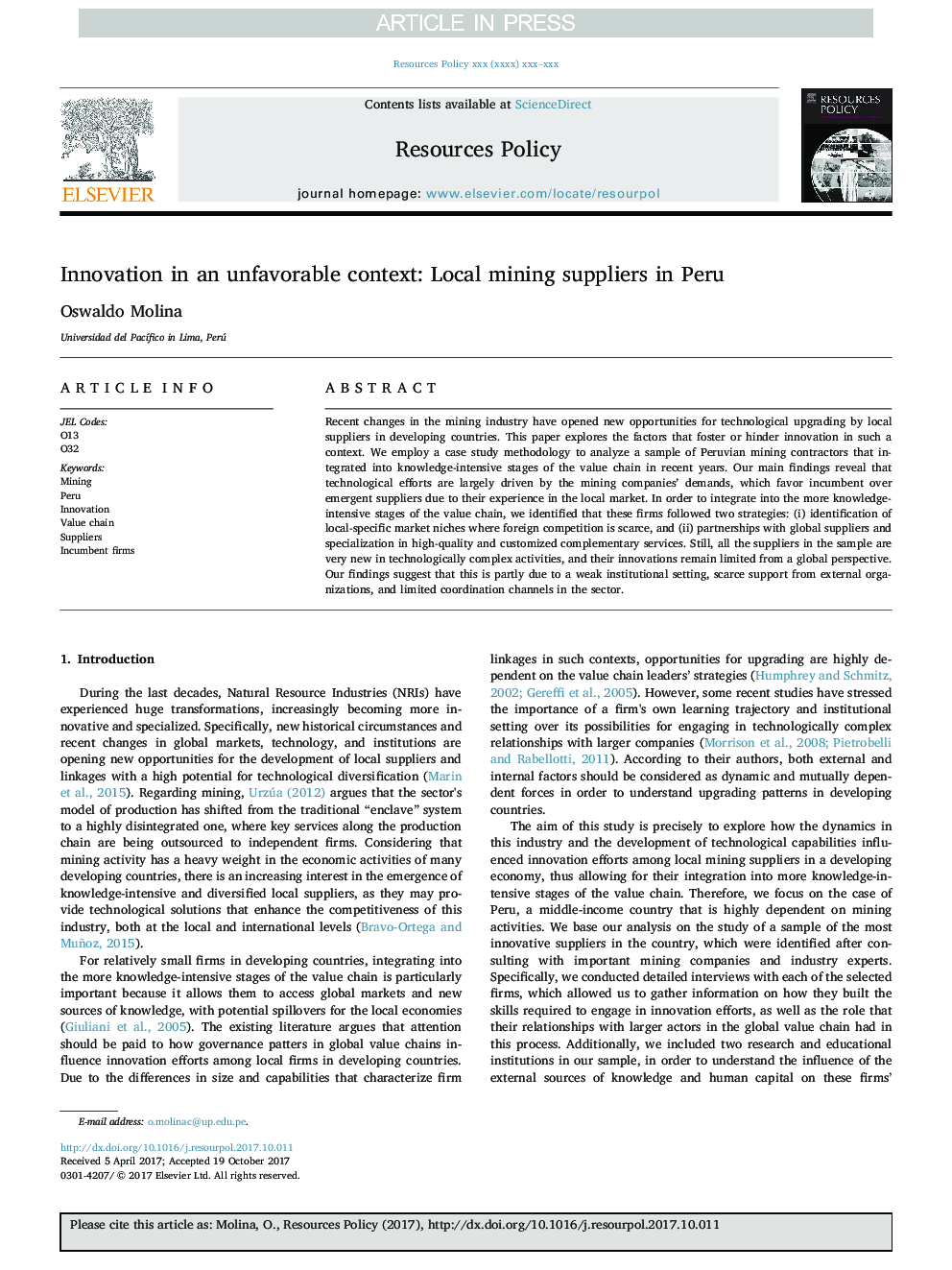| Article ID | Journal | Published Year | Pages | File Type |
|---|---|---|---|---|
| 10153761 | Resources Policy | 2018 | 15 Pages |
Abstract
Recent changes in the mining industry have opened new opportunities for technological upgrading by local suppliers in developing countries. This paper explores the factors that foster or hinder innovation in such a context. We employ a case study methodology to analyze a sample of Peruvian mining contractors that integrated into knowledge-intensive stages of the value chain in recent years. Our main findings reveal that technological efforts are largely driven by the mining companies' demands, which favor incumbent over emergent suppliers due to their experience in the local market. In order to integrate into the more knowledge-intensive stages of the value chain, we identified that these firms followed two strategies: (i) identification of local-specific market niches where foreign competition is scarce, and (ii) partnerships with global suppliers and specialization in high-quality and customized complementary services. Still, all the suppliers in the sample are very new in technologically complex activities, and their innovations remain limited from a global perspective. Our findings suggest that this is partly due to a weak institutional setting, scarce support from external organizations, and limited coordination channels in the sector.
Related Topics
Physical Sciences and Engineering
Earth and Planetary Sciences
Economic Geology
Authors
Oswaldo Molina,
